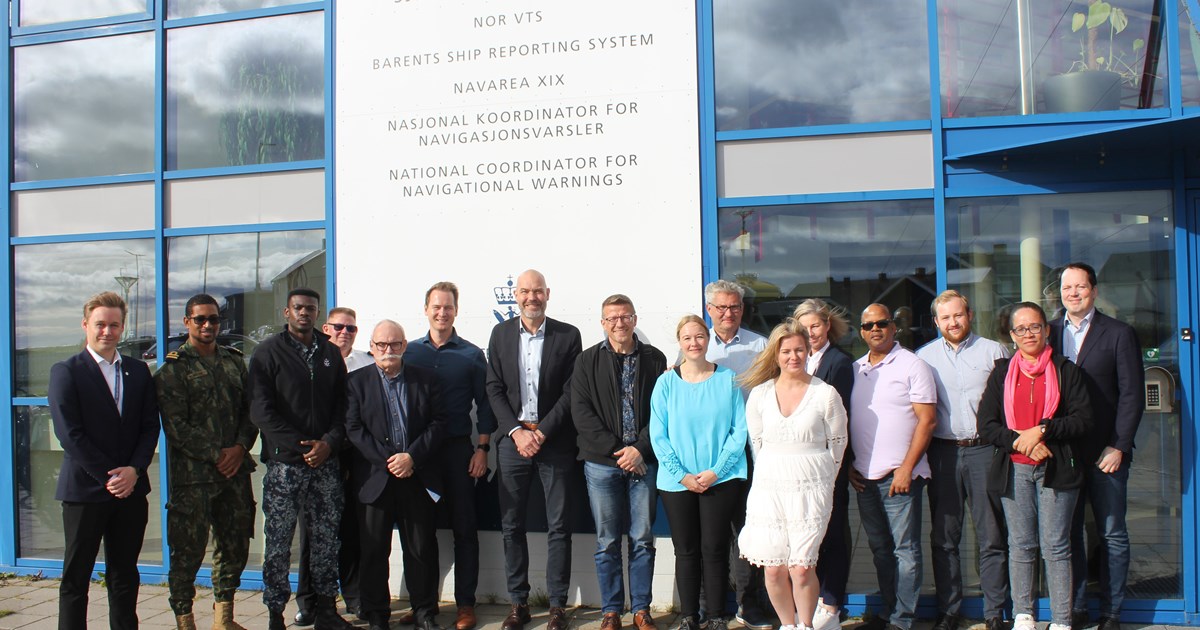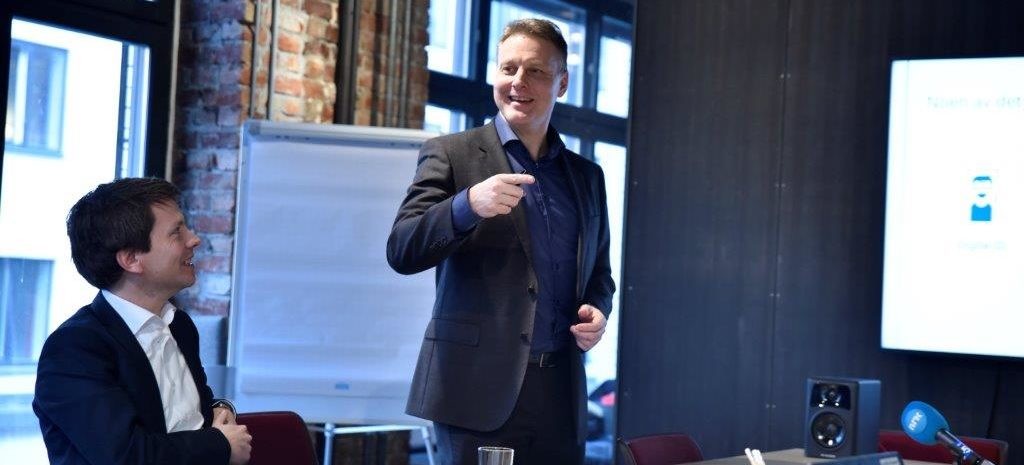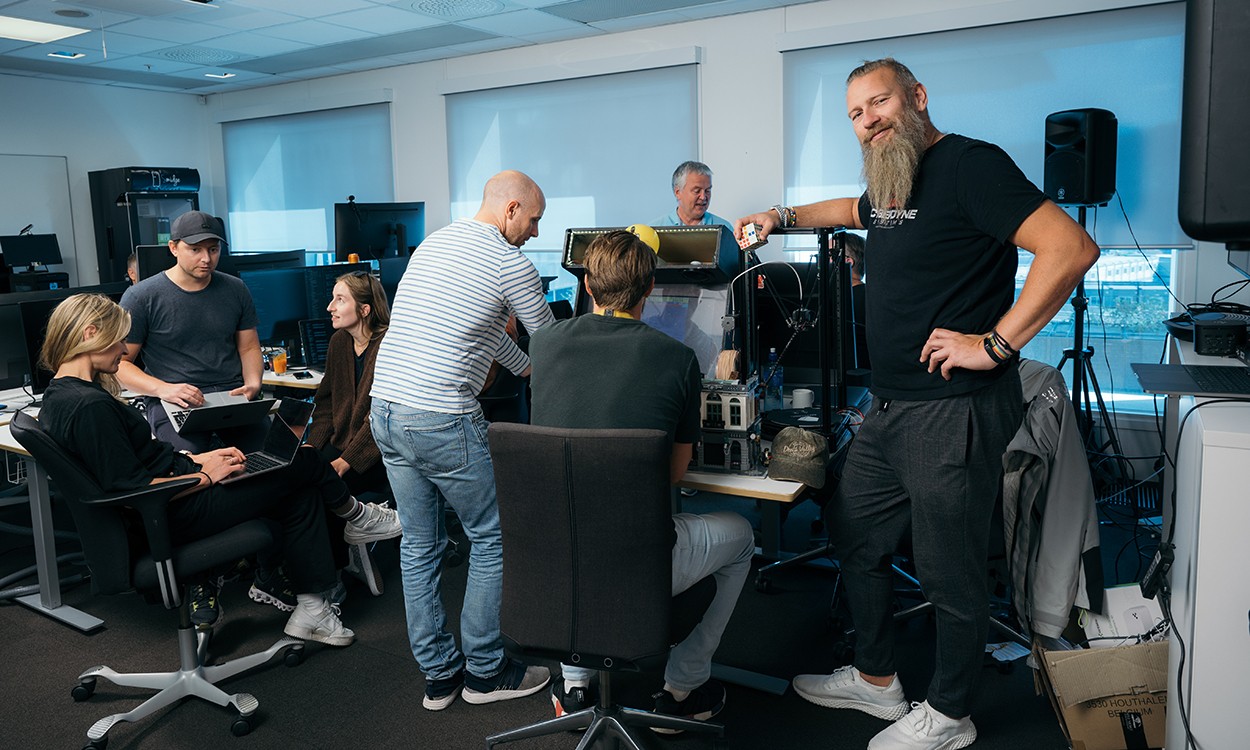On Thursday, the government launched a global ocean watch program against fishing crime, to which the Norwegian Coastal Administration and BarentsWatch contributed resources and expertise.
More than a third of the world’s coastal countries will now receive AIS data from the Norwegian satellite via Blue Justice Community, a communications tool developed by BarentsWatch. These countries receive information free of charge, and are thus able to conduct their own analysis and uncover fishing crimes. Cooperation between littoral states is also part of the solution, and they can get free assistance from the Norwegian tracking unit in Vardø, which is staffed by analysts from the Coastal Administration and the Directorate of Fisheries.
– Crime fishing is a big and wide problem. We at BarentsWatch want to make our contribution to something that can be part of the solution, said BarentsWatch lead Nina Buvang Vaaja.
Digital tools now under development allow operational agencies from different countries to work together to combat transnational organized fishing crime. The platform to be used by littoral states is based on the service that BarentsWatch has created nationally to enable interaction between various agencies and public bodies.
International investment
– Fishing crime threatens marine ecosystems and sustainability, and deprives local people of jobs and assets. The fight against illegal fishing is very important for a large port country like Norway. We are now sharing Norway’s technology and expertise with many other countries to address this issue, said Maritime Affairs and Fisheries Minister Bjørnar Skjæran (Ap).
Norway has long been a driving force behind concerted international efforts against fishing crime, and has funded projects against fishing crime that are part of the United Nations development program.
– What is unique about this Norwegian initiative is that it combines strong government expertise with digitization and data sharing. This is very important for the United Nations in our efforts to achieve our sustainability goals, said Ulrika Modeér, UN Assistant Secretary General and Director of UNDP’s Office of External Relations.
Read more: Norwegian satellite will uncover illegal fishing
Sharing knowledge from Vardø
The interagency analysis unit of the Coastal Agency and the Directorate of Fisheries in Vardø has undertaken assignments from various coastal countries on several occasions. They analyze and track ship movements to uncover crimes at sea. In recent weeks, representatives from Jamaica and Cape Verde have visited and taken part in inpatient programs under the auspices of the Blue Justice initiative.
Units of analysis will contribute expertise and share working methodologies, so hosts can use them in their home countries to uncover illegal fishing in their own waters. Senior adviser Bjørnar Myrseth at the Directorate of Fisheries stated that the work done by this unit of analysis is quite unique, and that over the years they have developed their own practice for tracking and analyzing fishing activity.
‒ We have a strong professional environment located here in Vardø. We collaborate across disciplines and benefit greatly from the exchange of information between us, says Maritime Traffic Center Manager Ståle Sveinungsen at the Maritime Traffic Center in Vardø.
The hosts this time are analysts associated with the coast guard, fisheries authorities and maritime authorities from the island nations of Jamaica and Cape Verde.
Background
-
Norway took the initiative to declare a ministerial-level declaration of the Nordic countries against fisheries crimes in 2017, when Norway served as chairman of the Council of Ministers of the Nordic countries.
-
In 2018, Norway took the initiative to make an international declaration against fishing crimes. This agreement was originally signed by nine littoral states.
-
Currently, the international declaration against fisheries crimes has received support from 61 countries. This is equivalent to almost 37% of the world’s coastal countries. Most of these countries are developing countries, which will especially benefit from the new program.
-
In 2019, Norway started the “Blue Justice initiative”. This initiative will assist countries in fighting fishing crime internationally.
-
The development-oriented activities in this initiative are mainly followed up by the office of the United Nations Development Program (UNDP) in the Nordic region, which has an office in Oslo.
-
This collaboration will be carried out via a platform developed by Norway with technology from BarentsWatch and an international ship tracking center set up in Vardø in 2021.

“Music maven. Evil pop culture lover. Unapologetic creator. Friend of animals everywhere.”






